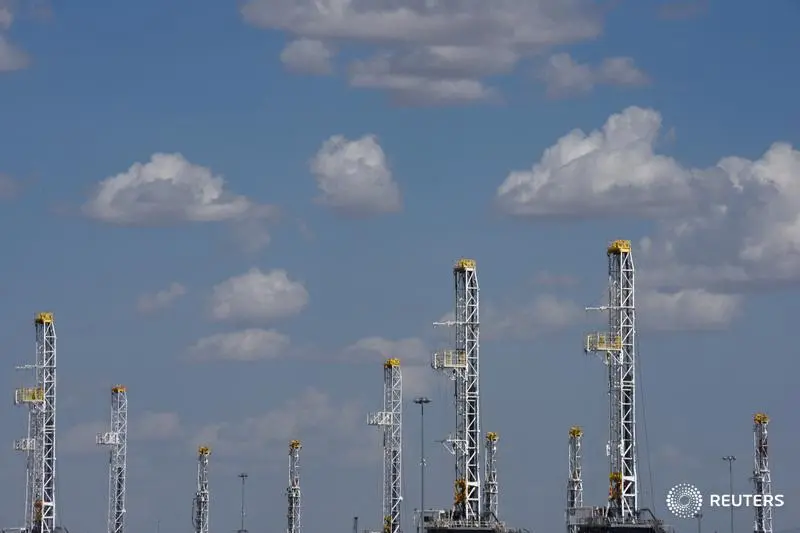PHOTO
LONDON- Crude oil in storage at major land and sea hubs rose last week, analysts and ship trackers said, as a build-up in China and the U.S. Gulf Coast reflected oil markets' bumpy road to recovery.
Refinery outages following a major storm in Texas and reduced oil intake by China during seasonal refinery maintenance were the prime reasons for the setback, they said.
Global oil in storage peaked in May last year as lockdowns related to the COVID-19 pandemic depressed demand, with barrels set aside for when the global economy picked up - something now forecast for later this year as vaccine rollouts gather pace.
Crude stocks on land in key areas - the United States, Northwest Europe, Singapore, Fujairah & Japan - built for the first time in 6 weeks last week, by 21.2 million barrels, according to Energy consulting firm FGE, which attributed much of the buildup to the winter storm in the heart of the U.S. oil industry.
Consumption was also subdued in China, the world's top crude importer and a key bulwark of demand as much of the world remains under tight coronavirus restrictions.
"China's crude purchases have been rather muted since December and buying activities have yet to pick up for May-June deliveries," FGE said.
The amount of crude oil stored at sea globally has risen for the last two weeks, noted data intelligence firm Kpler, which tracks oil shipments, led by a rise in floating storage levels off China and the U.S. Gulf Coast.
"This is probably more reflective of refinery maintenance programmes (in China) slowing crude digestion, rather than anything purely economic," said Kevin Wright, Kpler's lead analyst for Asia-Pacific.
Although purchases of crude oil have lagged a futures price rally which saw Brent shoot to $70 this week LCOc1 , a gradual ebbing of the virus crisis and a market structure called backwardation which favours prompter consumption has encouraged a longer-term de-stocking trend.
"Asia's crude floating storage stands at 58 million barrels today, down more than 60% from the peak that we saw last June," Serena Huang, Asia-Pacific lead analyst at oil analytics firm Vortexa, told Reuters.
"There's simply no economic incentive for oil storage".
(Editing by Kirsten Donovan) ((Noah.browning@thomsonreuters.com))





















